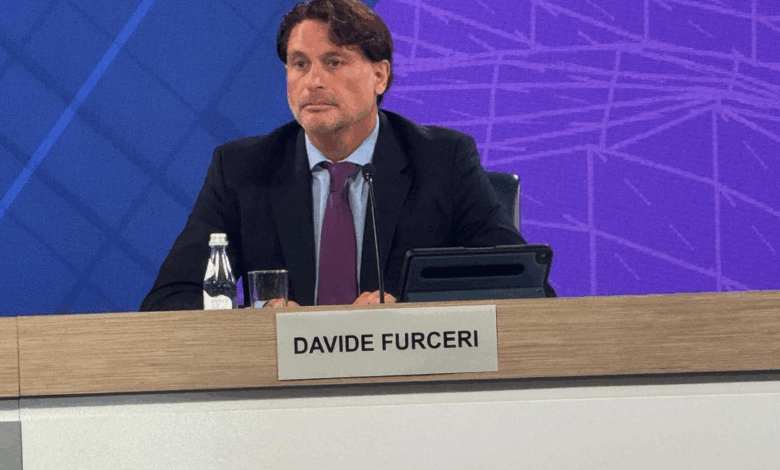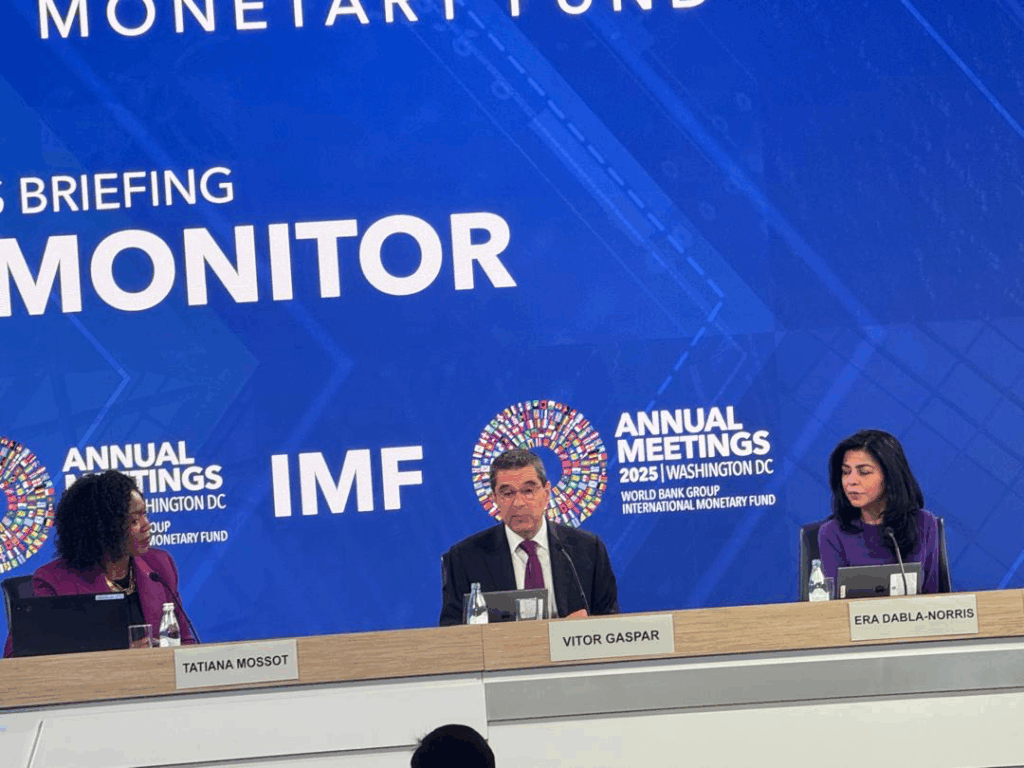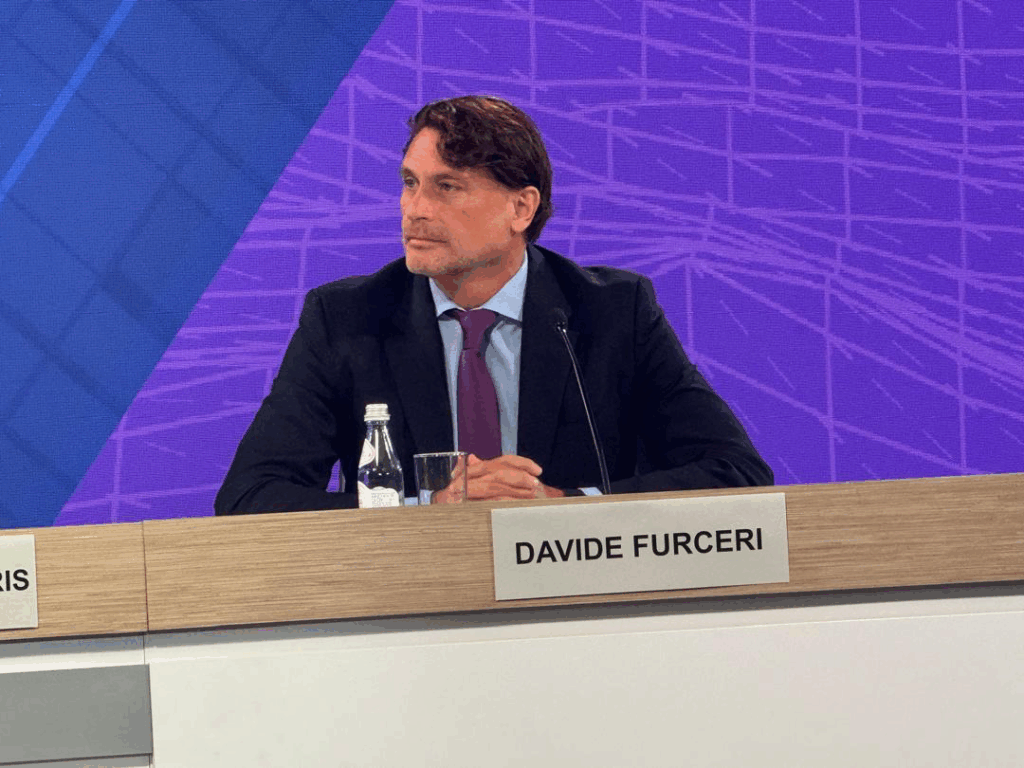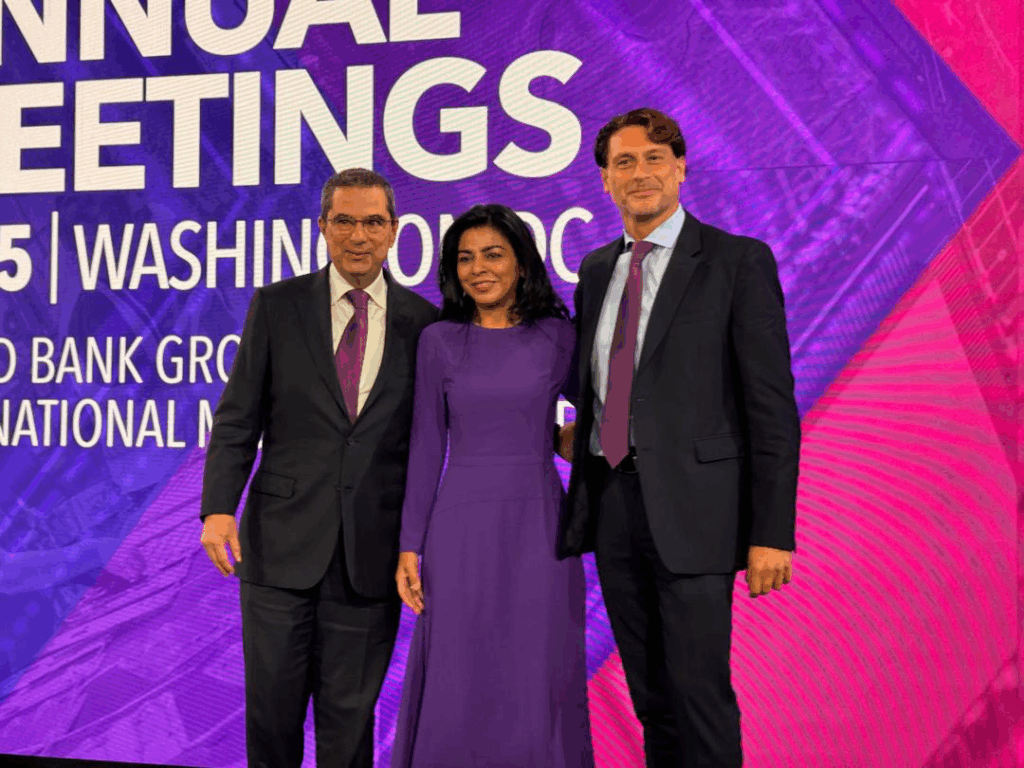Ghana’s debt-to-GDP ratio to hit 59% by end of 2025 – IMF

The International Monetary Fund (IMF) has projected that Ghana’s Debt-to-GDP ratio will hit 59.1 per cent by the end of 2025.
The projection was captured in the October 2025 Fiscal Monitor Report released on the sidelines of the Annual IMF/World Bank Meetings in Washington, D.C.
According to the report, the forecast is slightly lower than the 60 per cent target set by the government for the same period.
The IMF also projects the ratio to decline to 56.1 per cent in 2026, 53.7 per cent in 2027, and 51.3 per cent in 2028.
The estimates indicate that by 2028, Ghana will perform better than the 55 per cent Debt-to-GDP ratio targeted under the Extended Credit Facility (ECF) Programme, which aims to restore debt sustainability.

Current Debt Levels and Ratio
The Bank of Ghana’s Financial and Economic Data released in September showed that the country’s debt-to-GDP ratio as of July 2025 stood at 44.9 per cent, equivalent to GH¢628.8 billion.
It remains unclear whether the debt level will rise again in the coming months or whether the economy will experience a contraction.
However, some analysts believe that as Ghana continues to make progress with debt restructuring, the final debt stock could further decline by the end of 2025.
Under the current IMF programme, the government is expected to bring the debt-to-GDP ratio down to 55 per cent to maintain debt sustainability.
Many economists use the Debt-to-GDP model because it is considered a reliable measure of a government’s ability to meet its debt obligations.
A higher ratio may signal increased risk of default, but debt management capacity depends on factors such as growth and the ability to service obligations without refinancing.
The IMF also noted that Ghana’s debt projections are based on a post-debt restructuring scenario, reflecting the country’s ongoing efforts to manage its liabilities.

IMF on Ghana’s Debt Sustainability
Responding to a question from JOYBUSINESS during the Fiscal Monitor briefing, the Deputy Division Chief at the IMF Research Department, Davide Furceri, urged Ghana to strengthen its Public Financial Management (PFM) systems to avoid future debt crises.
He emphasised the need for improved revenue mobilisation through enhanced tax administration and broader VAT compliance to create fiscal space for priority spending.

Government on Debt Restructuring
The government has announced that it has successfully restructured a significant portion of its bilateral debts but is still finalising negotiations with commercial creditors.
According to the Ministry of Finance, Ghana has signed debt restructuring agreements with six bilateral partners, as part of efforts to stabilise public finances.
The government has reiterated its commitment to fiscal discipline, promising not to revert to unsustainable debt.
It further indicated that the medium-term debt management strategy (2025–2028) provides an appropriate financing mix to achieve the debt management objectives outlined in Section 57 of the Public Financial Management (PFM) Act.
Government has also stressed that its debt management approach is guided by debt sustainability analysis and reinforced by reforms under the IMF-supported programme.
DISCLAIMER: The Views, Comments, Opinions, Contributions and Statements made by Readers and Contributors on this platform do not necessarily represent the views or policy of Multimedia Group Limited.
DISCLAIMER: The Views, Comments, Opinions, Contributions and Statements made by Readers and Contributors on this platform do not necessarily represent the views or policy of Multimedia Group Limited.
Source link





